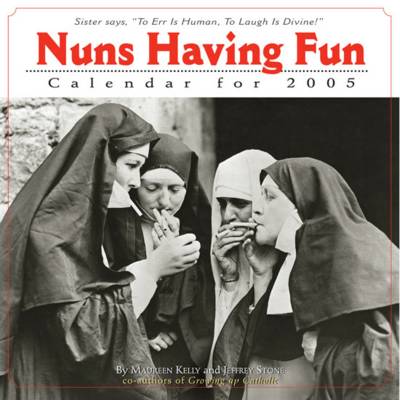
This would make a fine
Christmas present.
We saw
Saved! last night and I must confess I didn't really understand why it got under some people's skins the way it did. The movie seemed to say that you can't use religion as a bully pulpit, or as a shield for your own agrandizement or power. It said that our relationship with God is not about mouthing the right words or doing the right things robotically. Today's
reading backs that up:
The Pharisee took up his position and spoke this prayer to himself,
'O God, I thank you that I am not like the rest of humanity--
greedy, dishonest, adulterous--or even like this tax collector.
I fast twice a week, and I pay tithes on my whole income.'
But the tax collector stood off at a distance
and would not even raise his eyes to heaven
but beat his breast and prayed,
'O God, be merciful to me a sinner.'
I tell you, the latter went home justified, not the former;
for whoever exalts himself will be humbled,
and the one who humbles himself will be exalted."
I have to be careful in this post because it is not my intent to attack anyone. I'm only asking honest questions. I must admit, however, that the appeal of the kind of Christianity in the film is a mystery to me. The best I can do is suppose that there are some people who cannot abide not knowing if they are saved or not. There seems to be a danger in this stance, however, of the 'elect' putting themselves above their neighbor, rather than helping him. Mandy Moore yelling that she was "filled with God's love" and throwing the Bible at Jena Malone epitomized that sentiment for me. It also seemed that any human failing was "proof" that the person in question was not, in fact, saved after all, and that lead to a great deal of tension and robotic behavior.
Catholics are usually more accepting of mystery. Mystery, I think, ought to act as a motivator - for reflection and for action, for longing those small, graceful movements of the heart through which faith grows. It seems to me that the mystery and the longing are bound together and that you can't have one without the other.
The smoking nuns pictured above would today be considered to be sinning against the fifth commandment (thou shalt not kill), as we now know smoking is very unhealthy. At the time of the photo (I'm guessing it was in the 1940's or 50's) smoking might have been allowed, depending on the order they belonged to and what the occasion was. The action in both cases is the same, but the attitude towards God is different with the new information, and that changes the meaning of the act. The Catholic takes in new information and responds accordingly trusting that if one is sincere in repentence forgiveness will be given. The other point of view seems to be always under threat.
Note: Ignorance is not an excuse, as we are obliged to find out as much as we can about what is permitted and what is not. You can't be saved by Sloth. 
 This would make a fine Christmas present.
We saw Saved! last night and I must confess I didn't really understand why it got under some people's skins the way it did. The movie seemed to say that you can't use religion as a bully pulpit, or as a shield for your own agrandizement or power. It said that our relationship with God is not about mouthing the right words or doing the right things robotically. Today's reading backs that up:
This would make a fine Christmas present.
We saw Saved! last night and I must confess I didn't really understand why it got under some people's skins the way it did. The movie seemed to say that you can't use religion as a bully pulpit, or as a shield for your own agrandizement or power. It said that our relationship with God is not about mouthing the right words or doing the right things robotically. Today's reading backs that up:

Comments